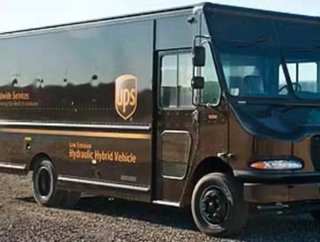UPS makes the move towards a greener fleet

UPS has announced the deployment of 40 new hydraulic hybrid delivery vehicles (HHV’s) today, which are to be released by the end of this year.
The vehicles, which have been developed by the Freightliner Customs Chassis Corporation and Parker Hannifin Corporation, are designed to provide improve fuel economy by up to 35 percent and lower CO² emissions by up to 30 percent, when compared to traditional diesel vehicles.
The new fleet will be deployed in Baltimore and Atlanta, with 20 of the new vehicles beginning service today in Baltimore, and a further 20 being released in Atlanta later this year. Both deployments were partially supported by grants from the US Department of Energy’s Clean Cities Program, which is focused on supporting local actions to reduce petroleum consumption in transportation in order to advance the economic, environmental and energy security of the United States.
SEE RECENT STORIES FROM THE WDM CONTENT NETWORK:
- FedEx launches S$97m hub in Singapore
- EU to monitor shipping emissions from next year
-
Qantas acquires Australian air Express, sells StarTrack
UPS, which currently operates 2,593 vehicles powered by alternative fuels, already has one HHV operation in Laguna Hills, California and has been working closely with manufacturers to develop and test HHV technology since 2006.
The HHVs operate using two power sources - a fuel-efficient diesel combustion engine and advanced series hydraulic hybrid. Energy created by the vehicle's continued braking action is stored in the HHV's hydraulic high-pressure accumulator, similar to what is done with electric motors and batteries in a hybrid electric vehicle.
The HHV has a function to turn off the engine and drive the vehicle using the stored energy to propel the vehicle. This engine-off strategy can reduce up to 90 minutes of engine run time on a typical route. Because the HHVs efficiency relies on constant braking, the vehicles are best suited for urban routes, which typically involve frequent stopping and starting.
"Our long-term goal is to minimize our dependence on foreign energy and one way we will get there is through the deployment of a wide variety of technologies and designs in our fleet," stated Mike Britt, UPS director of alternative fuel vehicle engineering. "As early adopters of this technology, we are very pleased with the significant fuel economy and emission reductions that come from the HHVs."






